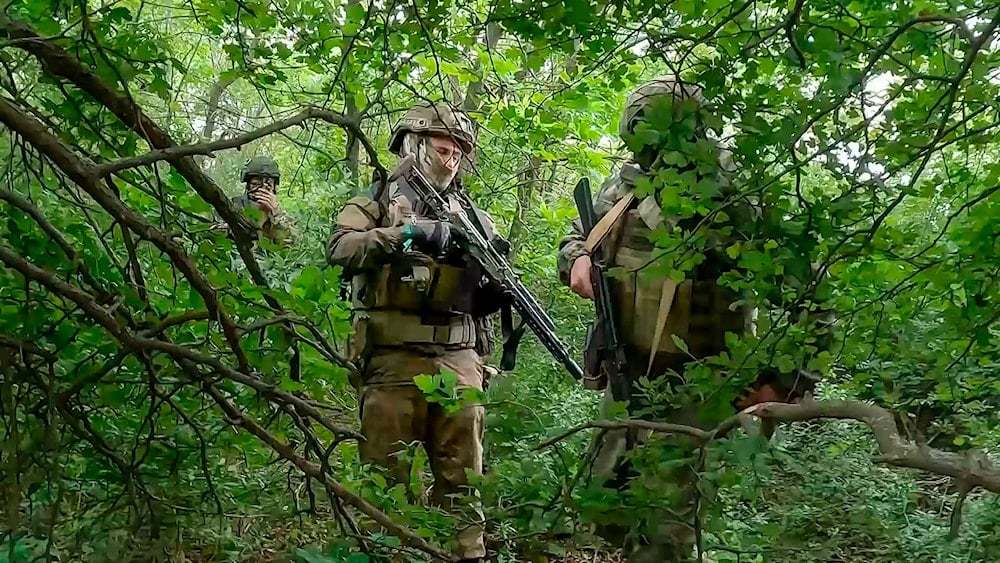Russia, US defense ministers discuss security, de-escalation over call
The call comes as a follow-up to the NATO warnings against Russia's alliances with China and the US' plans to deploy long-range missiles in Germany.
-

Taken from a video released by the Russian Defense Ministry Press Service on Wednesday, June 12, 2024, Russian soldiers walk through a forest in an undisclosed location in Ukraine. (Russian Defense/AP)
Defense Minister Andrei Belousov and his US counterpart Lloyd Austin spoke over the phone to discuss lowering the risk of "possible escalation" after the US announced plans to deploy long-range missiles in Germany, which the Kremlin warned could bring a Cold War-style confrontation, the Russian Defense Ministry revealed on Friday.
"The issue of preventing security threats and reducing the risk of possible escalation was discussed" in the call initiated by Moscow.
The two sides have managed to organize sporadic phone calls despite raging tensions over the war in Ukraine, including a recent call at the end of June where Moscow lambasted Washington's arms supplies to Kiev.
Amid a NATO summit in Washington on Wednesday, the US and Germany announced in a joint White House statement that the US will start episodic deployments of long-range fire capabilities to Germany to establish a lasting presence in the region.
"The United States will begin episodic deployments of the long-range fires capabilities of its Multi-Domain Task Force in Germany in 2026, as part of planning for enduring stationing of these capabilities in the future. When fully developed, these conventional long-range fire units will include SM-6, Tomahawk, and developmental hypersonic weapons, which have significantly longer range than current land-based fires in Europe," the joint statement said.
Read more: Germany warns of Russian 'attack' on NATO within ‘5-8 years’
This also follows a declaration of NATO leaders at their summit in Washington on Wednesday that it has titled China a "decisive enabler" of Russia's continued operations in Ukraine, lambasting Beijing for its partnership with Moscow.
NATO leaders complained about China's "large-scale support for Russia's defense industrial base," calling on the country "to cease all material and political support to Russia's war effort."

 2 Min Read
2 Min Read









